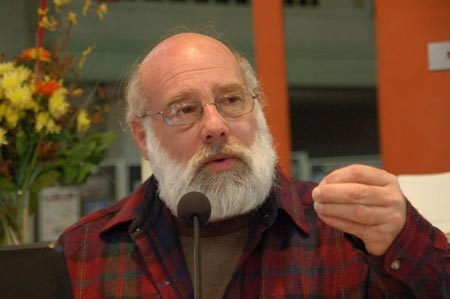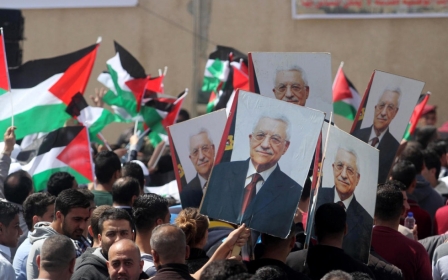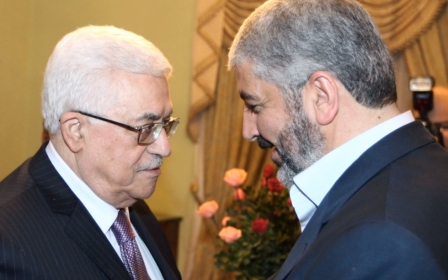Jeff Halper - An Israeli challenging the occupation

Jeff Halper is the first to admit that he is “off the radar” of fellow Israelis. He has been arrested for standing in front of bulldozers about to demolish Palestinian homes more times than he cares to count. His construction is dwarfed by the scale of Israel’s destruction. He and his volunteers have rebuilt 187 Palestinian houses out of a total of 29,000 destroyed. He counts it as a success that 175 of them are still standing.
He has had his EU funding withdrawn and his Israeli Committee Against House Demolitions (ICAHD) only really campaigns abroad. Operating on the fringe of the fringe at home, even his partners on the left are only willing to go so far, before they feel they are betraying their Zionism.
With a white beard and a hearty chuckle, it is difficult to picture this Father Christmas lookalike in front of a bulldozer. Like many lifelong activists, he is surprisingly upbeat, or rather, one senses he can’t allow himself to appear otherwise. The status quo, he claims, is the darkness before the light.
Like most people he sees absolutely no chance of the Kerry initiative succeeding, but its failure, will be salutary as it will put an end to the pretense. The fog will lift not only about the peace talks themselves, but about the permanence of settlements, annexation of land and the Palestinian Authority itself which may be forced to resign or collapse.
Halper’s favoured solution is a bi-national state, a fusion of what he calls cultural Zionism and Palestinian nationalism. This annoys everyone. Israelis see it as a betrayal, but Palestinians see talk of a binational state as a way of legitimising Zionism through the back door.
But things, in Halper’s world, can only get better. For all his optimism, he retains an unvarnished view of the here and now: “One of the reasons why it is hard for us to work in Israel is because all the issues we work on, the Arabs, peace, occupation, are non-issues for Israelis. “ In a poll taken in the last election campaign in Israel, the occupation came in at number 11 on the list of priorities.
“One party ran on the issue of gay rights. Another [the Labour party] said they were a social democratic party that only deal with internal Israeli issues and specifically did not take a position on the occupation.” He said, “It’s kind of an invisible issue. The Israelis are so insulated, they don’t go to the West Bank, they don’t see the West Bank, they hardly ever see Arabs…”
The invisibility of the Arabs works well as long as they stay in their place: “If you bring a plumber in to fix your bathroom you call an Israeli plumber but you know he will bring an Arab with him to do the work or to paint your house. If you go to a restaurant you know the waitress is going to be Jewish Israeli but in the kitchen they’re going to be Palestinians or Bedouins. Everybody is in their place.”
Halper shies away from the word racism, preferring instead separation: “To Israelis, Arabs are background. They’re wallpaper somewhere. The Israeli mentality is we don’t notice them, we don’t see them, we don’t encounter them, and if we do encounter them and they are in their place that’s fine. There is no way in which I will let them into my space, but at the same time I think the Arabs don’t want to be in the Israeli space either, so there is a separation.”
Halper arrived in Israel in different times. Born in Northern Minnesota in 1945, he never knew Jews. He grew up with Bob Dylan, went to Woodstock, went to jail in Mississippi, was part of the anti-war movement, and sees himself very much as a product of the 1960’s. He was deeply affected by the book Roots by Alex Haley which was published in the wake of the Civil Rights and African American movements. He was similarly entranced by Cesar Chavez and La Raza, as well as the American Indian Movement (AIM).
Halper grew so intrigued by the idea of reclaiming his own roots that it led to Israel. He came to the Middle East describing himself then as a cultural Zionist, but has been struggling with the word ever since: “I wanted to be part of a project of reviving the national language and having a university and a literature, being a part of that national project, but not Zionist in the political sense of saying there has to be a Jewish state. Today I avoid the term Zionist because I think it’s just too loaded. So when people ask me if I’m a Zionist, I say I’m an Israeli. There’s nothing wrong with the Israeli component as long as it’s not territorial, not colonial and if it’s not oppressive.”
As such, Halper is in a group you can count on the fingers of one hand. While there certainly are other Israelis who support Palestine, most draw a line much sooner than he does “because ultimately they are Zionists” and “since they are Zionists they can’t go there. You simply get to a point where you say OK, this is as far as I’m going. The minute I say the word apartheid, they say, we are a human rights organisation we are not political. So we can’t say the word apartheid because that’s a political term. The implication of the end of Zionism for them, they just can’t contemplate.”
Despite having been a civil rights activist, a Vietnam war resister, refusing to bear arms during his mandatory Israeli military service, and raising two children who would later go on to be imprisoned for being conscientious objectors he does not consider himself to be a pacifist. While he says he is certainly not “for war” he “does recognise situations in which you do have to respond in an armed way.”
He concedes that “under international law Palestinians are allowed to resist occupation, colonisation and oppression by armed force - although you are not allowed to attack civilians.” But then the question is that the best strategy or not. In the case of Palestine, he estimates that 95% of Palestinian resistance is peaceful non-violent resistance and credits that as the way forward. He sees the work he does with ICAHD as going hand in hand with that Palestinian civil resistance and as such, the way forward for ultimately bringing peace to the land.
New MEE newsletter: Jerusalem Dispatch
Sign up to get the latest insights and analysis on Israel-Palestine, alongside Turkey Unpacked and other MEE newsletters
Middle East Eye delivers independent and unrivalled coverage and analysis of the Middle East, North Africa and beyond. To learn more about republishing this content and the associated fees, please fill out this form. More about MEE can be found here.



